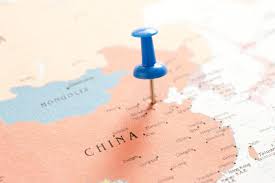
Over the past few decades, China has pulled off the greatest heist ever. More than 600 billion dollars every year is stolen from right under the noses of Americans, but the government is unable to do anything about it. China has been prospering, but Americans have been suffering, having their ingenuity turned against them. The problem is this: U.S. trademarks, copyrights, and patents have no authority over the Chinese government or businesses.
Nothing can stop China from taking any intellectual property (IP) you have. Your writing, music, inventions, or anything you create is protected domestically, but there is no legal action the U.S. government can take against sovereign nations regarding IP.
Because there are no ramifications for the theft, China is open about taking advantage of Americans. According to the House Foreign Affairs Committee, “China leverages its entire legal and regulatory system to coerce technology transfer or steal IP” (House.gov). China has laws that restrict foreign participation in every sector of their economy. When a company wants to do business in China, China requires “them to instead form joint ventures with Chinese companies before they can gain market access” (FBI).
China dedicates time and resources to stealing IP from Americans, but what’s in it for them? After stealing IP they can then sell American products/inventions/art to other countries throughout the world. Right now, China is trying to avoid the repercussions of heavy investment in infrastructure and real estate (WSJ). Their current economic model is crumbling and they need a stimulant to revive and rebuild it.
China still wants to become a “comprehensive national power” (FBI) through its economy. What they have discovered is that one of the best boosts in innovation is other countries’ innovations. For China, “the theft of up to $600 billion per year of U.S. IP is central to the Chinese Communist Party’s ‘generational fight to surpass the United States in economic and technological leadership’” (Columbia Business Law Review).
This has led to the Chinese Communist Party prioritizing the country’s well-being over the citizens’ well-being. This has led China to have many social issues, such as being ranked 144th in the world for healthcare quality. Yes, healthcare is much cheaper than in the U.S., but doctors don’t get paid very well since the government pays for most of it. This has led to a shortage of doctors, with only 1.6 for every 1,000 citizens.
The life expectancy is around 78 years in China, around 2 years better than the United States. Both countries are relatively low though, and countries like Japan lead the pack with 84 years. China feels that the way to improve this is through the modernity of healthcare technology, which will no doubt be done through IP theft.
IP theft can improve China, but it can also hurt American businesses and the American economy as a whole. According to Schmeiser Olsen & Watts (an IP law firm), “intellectual property theft not only affects individual businesses but also the overall economy. It can result in job losses, decreased tax revenue, and stifle economic growth”. Also, “China’s practice of pressuring foreign companies into sharing trade secrets and intellectual property with Chinese corporate partners has a disproportionate impact on U.S. companies built around specific technology rights, know-how, and data” (CEIP). This discourages American companies’ success in foreign markets. China is always looking for a reason to disallow American companies from participating in their market. This is one of the ways China restricts its market and provides an unfair advantage to companies from China.
Copyright infringement can also have negative impacts on cultural diversity. “Inadequate protection of copyright and related rights can hamper the creation of new works and sound recordings” (Michigan State College of Law). This can reduce the variety of creative works available to the public, potentially limiting the diversity of cultural expressions and artistic creations.
IP theft discourages innovation, and “in a thriving economy, innovation is the engine that propels growth, diversification, and competition” (Cyberhaven). China is taking away the ability of the American economy to thrive.
Because China’s state-sponsored IP theft has such an impact on Americans, many solutions have been proposed to stop the economic harm that this infringement causes. The U.S.’ current IP laws have no control over China, so something needs to be changed to avoid all of the negative impacts above.
One of the most prominent proposals has been to amend the Foreign Sovereign Immunities Act to classify Chinese IP theft as an act of terrorism, or to create a new legal category entitled “state sponsor of mass IP theft”. If a country is found to fall into this legal category, it loses its sovereign immunity strictly for liability of IP theft. This legislation proposal is detailed by Dore Feith from Columbia Law Review.
This legislation would enable U.S. citizens to take action against China. A more effective version of the legislation may include an entirely new department of government. In this proposal by Aidan Frye (sophomore at Sentinel), state-sponsored IP theft would still be a new legal category and classified as an international crime that the U.S. could punish. This legislation, though, would have a government-funded legal department that citizens could use to pursue litigation against the Chinese government. This department would also be in charge of processing cases against the Chinese government and determining whether or not the citizens/businesses have had their IP rights violated by China.
This plan would cost quite a bit of money, but it is an investment for the U.S. government and U.S. businesses. The U.S. is losing a projected 600 billion every year because of IP theft, and this plan would help regain well more than what is spent on the project and department administration. The U.S. would increase its GDP with this plan, and American businesses would be able to thrive without having to worry about product imitators and technology thieves.



